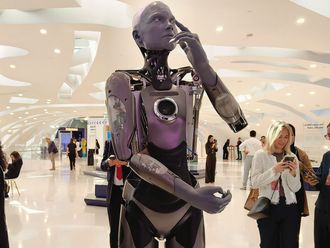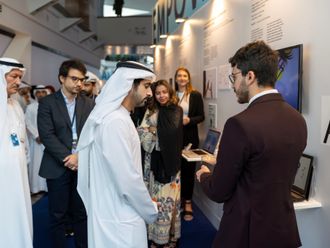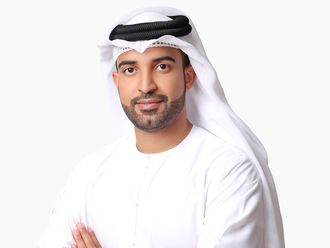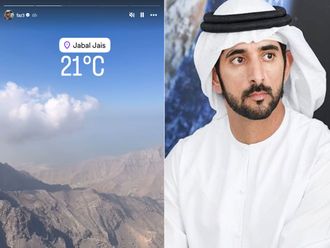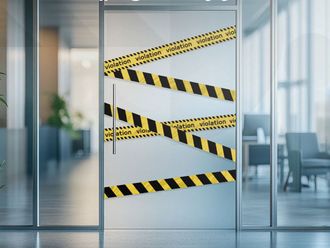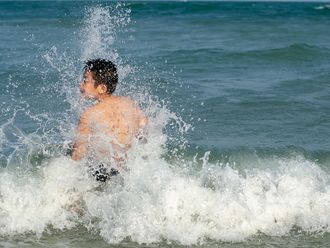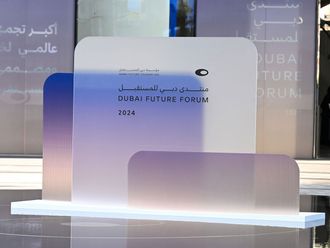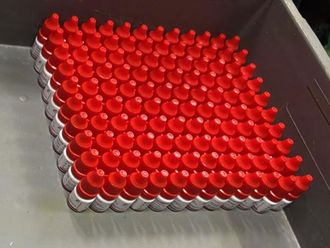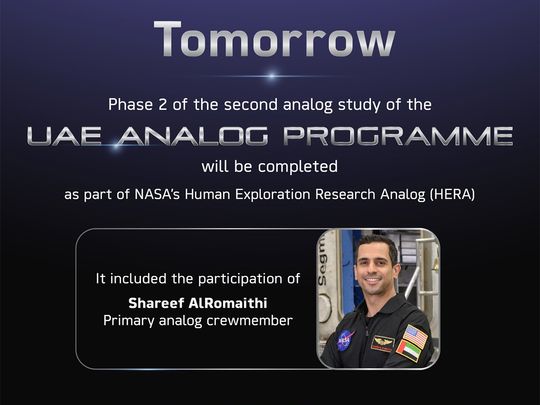
Dubai: The second phase of the second analog study of the UAE Analog Mission will be completed tomorrow, the Mohammed Bin Rashid Space Centre (MBRSC) announced today.
Taking to X, the centre said over the course of 45 days, the crew undertook a simulated journey to MARS, in the National National Aeronautics and Space Administration (NASA)’s Human Exploration Research Analog (HERA) facility.
The UAE’s Shareef AlRumaithi is a primary anolog crew member.
The crew will stay at NASA’s Johnson Space Centre for seven days following the egress, providing crucial data for further studies, the centre said.
What are analog missions?
Analog missions are simulated space missions conducted on Earth that simulate the living conditions of astronauts on a real space mission. These missions provide researchers with a controlled environment to study the physical and psychological effects of long-duration space travel on humans. Analog missions are crucial to the advancement of space science as they provide a means to test new technologies and methods for space exploration, improve our understanding of human behavior and physiology, and develop strategies for enhancing crew safety and performance.
What about HERA?
HERA is a unique three-story habitat designed to serve as an analog for isolation, confinement and remote conditions in exploration scenarios.
The programme follows a general campaign and in each campaign, there are four missions. The objective from this analog is to ecplore the effects of isolation on the human body, and help understand the implications of such missions in the future.
First analog mission
The first UAE Analog Mission, as part of the SIRIUS-21 programme, has been completed. It aimed to test the effects of isolation on human psychology and physiology.
Analog Astronaut Saleh AlAmeri from MBRSC took part in the mission with international collaborators from the Institute of Medical and Biological Research in Moscow and NASA. He conducted 70 experiments, including five experiments from four Emirati universities covering the fields of physiology, psychology, and biology.
“The mission’s success will positively reflect on scientific research efforts and contribute to new knowledge and innovation. The UAE’s participation in the mission demonstrates the world’s confidence in the nation’s space exploration capabilities and reflects the high value of national initiatives and projects in the field of space exploration for the benefit of humanity and the global scientific community,” MBRSC said.


